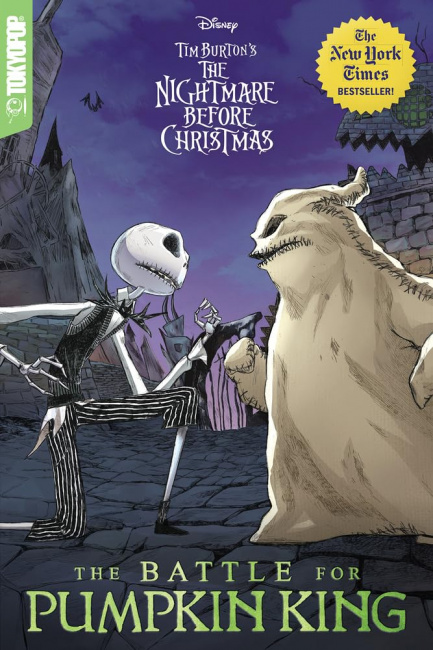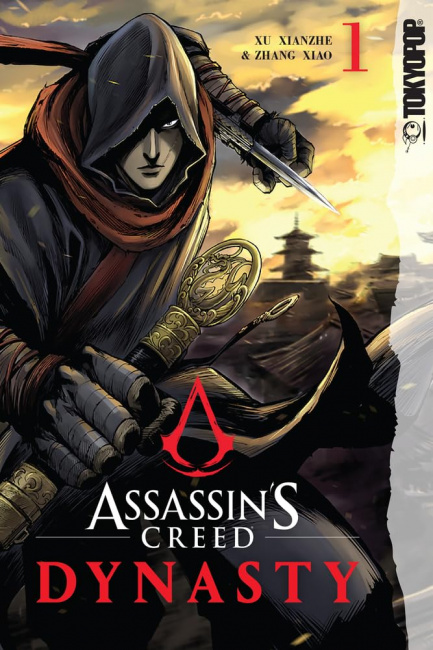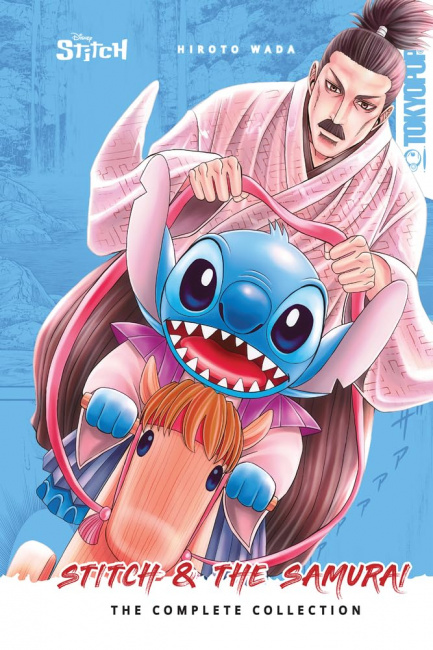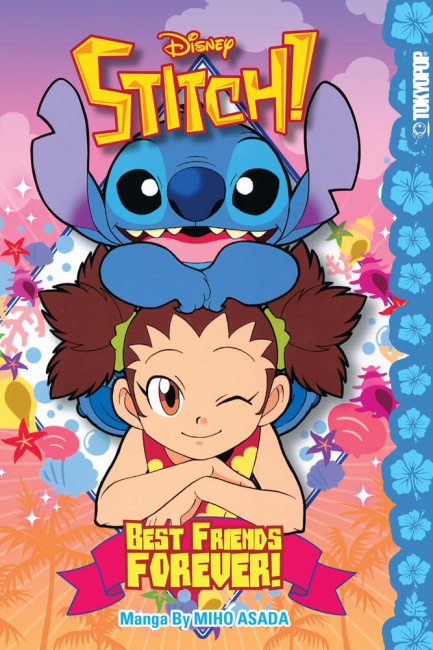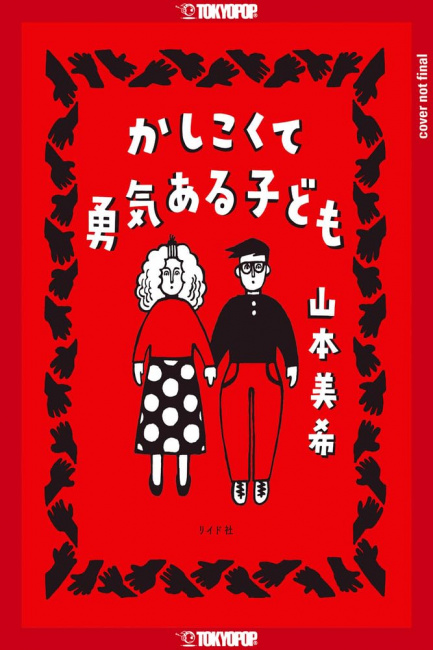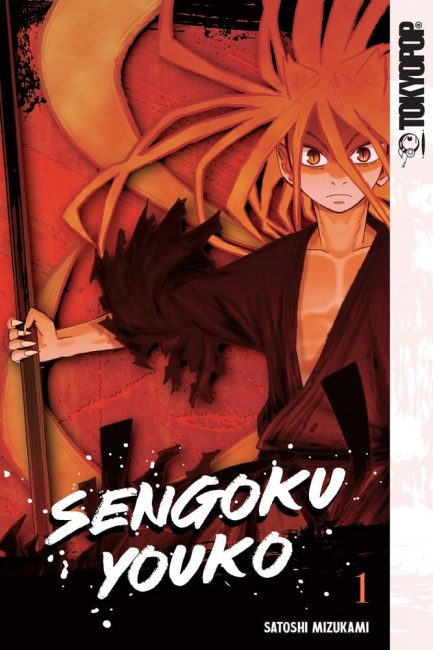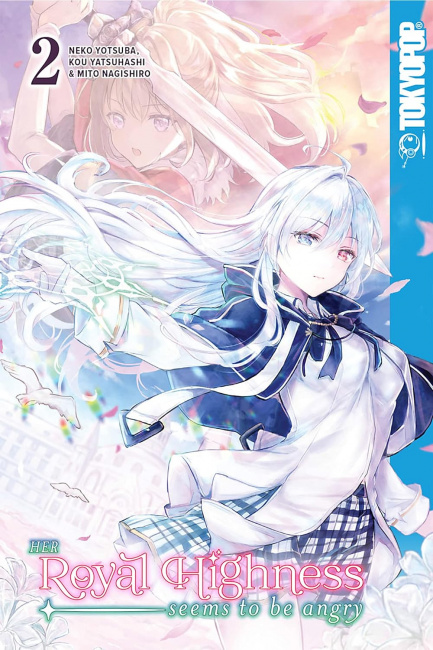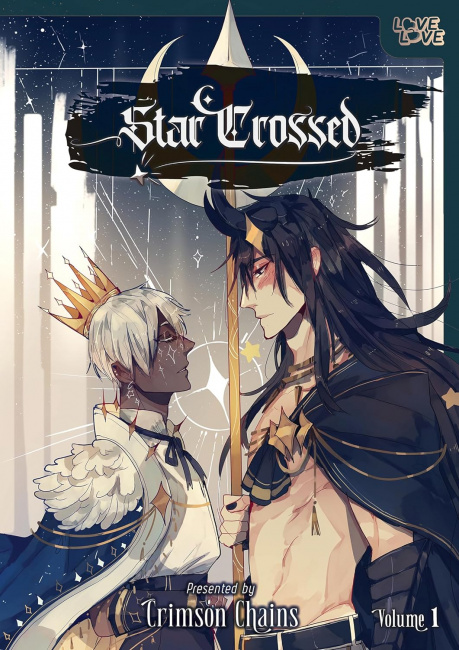Marc Visnick came to Tokyopop in 2022 as VP of Publishing and was promoted to COO and Publisher the following year (see “People on the Move”). Since then Tokyopop has had several successes, including the best-selling Nightmare Before Christmas: The Battle for Pumpkin King. Their shonen series Sengoku Youko has been adapted into an anime series that started running in January 2024. Visnick talked to us about top titles and what’s coming up, and he also broke a bit of news: Tokyopop will publish its first Spanish language title later this year.
How would you describe Tokyopop right now, in terms of what you publish?
We’re a boutique publisher that focuses on quality versus quantity, always looking for stuff that’s trending and that addresses real-life issues, and we’re looking to continue to stay ahead of the curve and create new trends and evolve in the marketplace.
We’re going to be releasing our first Spanish language title in 2024. I can’t announce what the title is as of yet, because we’re still working on the release approval, but it’s a notable IP and it will be released in late 2024. We’re going to be dabbling with Spanish language translation for existing content. We think there’s a lot of demand in the marketplace for that. Part of the impetus for that release was a conversation with a retailer in the marketplace that has already committed to picking up that title, so we’ve got an early adopter.
Your Nightmare Before Christmas books have really blown up. The latest book, Nightmare Before Christmas: The Battle for Pumpkin King has been a best-seller, and the other books are doing well also. Why is that?
Last year was the 30th anniversary of Nightmare Before Christmas,and Disney put a lot of marketing and placement into it. I think that contributed to the success that we have seen. Even prior to the 30th anniversary, we’ve seen a large increase in demand for all things Nightmare Before Christmas. Pumpkin King turned out really great, and we had great product placement. Target even put it in its weekly flyer, with an audience of 5 million plus people. We are continuing to develop new adaptations of what we have. We are coming out with a full color version of our original black and white Nightmare Before Christmas, what we refer to as the movie manga version.
That’s the direct adaptation of the movie?
Yes. That will be out later this year, full color, graphic novel trim size.
You also published an Assassins Creed manga. What plans do you have for other licensed properties?
When you work with those IP holders, your reach is a bit further than some of the traditional niche titles that have only a certain audience. We’re working with Ubisoft on some projects right now, and we’re talking to a couple of other larger licensors of notable IP that we’re hoping to announce sometime in the next month or so.
Disney has been a great partner for us. We released Amphibia: Marcy’s Journal last year, and that’s done very well for us. We’re working on another project with Matt Braly right now.
Manga sales have been declining, which is not surprising, given the highs of the previous years. How is that working out for Tokyopop? Which types of properties seem to be the strongest right now?
We’re probably one of the few within the space that actually had an up year last year, when you look at our list in its entirety. That’s attributable to our boutique strategy of really looking at quality versus quantity in terms of what we release. I think that differentiates us in the marketplace a bit. Disney has led the way for us this past year in particular, with the strength of Nightmare Before Christmas and Stitch. Both are very strong IPs, and we anticipate that Stitch will continue to gain momentum over the next year or so, based on everything that we’re seeing and hearing from Disney and also from retailers in the marketplace. With our traditional manga, our Love X Love all-inclusive romance has been the shining star for us, and that’s what we predominantly put out these days. Boys love and girls love, boys love being the focal point. Boys love is continuing to be popular. Vampire boys love is really, really popular right now.
Between the Disney manga and other titles such as Alice in Kyoto Forest, Tokyopop has been producing manga for younger readers, which is something we’ve heard there is a lot of demand for. Is that something that just come about because of Disney, or is it something that you are pursuing?
It came along with Disney, and we continue to run with that. We see those trends as well in the marketplace. Scholastic has really taken a liking to Stitch in particular and has done really well with that over the past year, and they’re continuing to pursue that with us.
The young-readers Stitch manga?
Yes, we’ve got Stitch Vol. 1 and 2, and then we’ve got a sequel called Stitch: Best Friends, which is kind of Vol. 3, but really the sequel. We’ve got Stitch: The Manga Collection that’s coming out later this year, which will encompass volumes one and two together as an omnibus. That will hit retail in July. It turned out really well.
Manga for the younger generation is something that we’re actively pursuing. We’ve got an initiative that we haven’t formally announced yet around a new imprint that will focus on the younger manga audience in particular around education. More to come on that!
What are your hot titles coming up this year, and in particular, what would comics retailers want to know about?
We announced Far Cry: Cull the Herd, which is our Free Comic Book Day release. That will be coming out this year, and that’s obviously geared specifically for the comic book market and geared for teens. It’s a Ubisoft product. We’ve been releasing Resident Evil as single issues throughout 2023 and that will be followed by a graphic novel that’s coming out in March.
The direct market has done really well with Disney in general. Nightmare Before Christmas has been a very popular product, and Stitch has picked up significantly, so all of the Disney releases that we’ve got coming up later this year will be applicable for the direct market.
In June we’ve got a title coming out called A Smart and Courageous Child, which is kind of a different take for us. It was an award-winning title in Japan, and it’s nonfiction, talking about the concerns of raising a child in today’s environment.
That sort of book is something that Tokyopop has leaned into a little bit, with the Ukraine anthology (see “Tokyopop Announces Anthology of Ukraine War Stories”) and the one about Fukushima (see “Tokyopop Launches New Imprint with ‘Guardian of Fukushima’”). Is that is that going to continue to be a focus for you?
It is.These kinds of nonfiction titles fall within what we call “Comics that Matter”. It’s a medium to raise awareness about important causes and social issues. Victory for Ukraine, Guardian of Fukushima, Why I Adopted My Husband, and At 30, I Realized I Had No Gender are all part of that movement that we’re supporting to encourage awareness of those social issues. We’ll continue that. That’s definitely an initiative for us.
The anime has just been released for Sengoku Youko. What are your expectations for that series?
It’s a very niche title in the manga world, but obviously with the announcement and the release of anime, it should bring a lot of attention to that property. We are anticipating that we’ll see a heightened demand.
What percent of your sales are digital?
About 15% right now, and growing.
Where are people finding your comics digitally?
Across the board. We started working with Renta, and that’s been quite nice. On the library side, Hoopla rolled out a manga-specific digital program. We’ve seen a tremendous growth them. We were the pilot publisher for that program, and we’ve seen exponential growth. BookWalker, Amazon, of course. We really broad distribution across digital platforms.
What is your strategy for digital-first releases?
95% of what we release is available both in digital and print. We typically aim to release digital first, generally two months prior to the to the print release date. Part of the reasoning behind that is we feel it’s a good way to start interest in the print release that’s ensuing. We find that most fans are interested in purchasing both digital and print, so it’s part of our overall strategy, and we feel like it’s been a successful strategy thus far.
Does it predict sales?
In some cases, yes. I would say digital is pretty consistent across the board for new releases for us, but we occasionally get that really significant bump where it makes us take notice and makes us wonder whether or not we’ve printed enough print copies, to be honest.
What’s an example of a title that has done well in digital?
One title that has done exceptionally well, digitally, more so than print, was Her Royal Highness Seems to Be Angry. For whatever reason, the percent of digital sales versus print is significant.
You publish two Korean boys love manhwa, On or Off and Hyperventilation, that were originally published as webtoons, although not in English (see “Manhwa in America: Stu Levy of Tokyopop”). How are they doing?
Both of them have done very well, for us, especially On or Off. We’ve released four volumes thus far, and it’s exceeded our expectations.
Are you looking for more?
We’re always keeping our eyes open. We’re actually working with a couple of independent webtoon creators. We’re releasing our next one in February, Star Crossed, which we’re very excited about. We previously released Love Murder Basketball, and we’ve got more in the pipeline.
Why does Tokyopop publish single-issue comics?
It’s part of the overall release strategy, generally around our notable IPs, some of the Disney stuff, the Ubisoft stuff, like Resident Evil and Nightmare Before Christmas. Part of our strategy is to release those single issues to continue to feed into the direct market, as there’s obviously interest and demand for single issues, and then follow up with the graphic novel compilation. Outside of those IPs that we released in a graphic novel format, we haven’t really done any single issues. It doesn’t really make sense for traditional manga.
So you feel that it’s building an audience, and the direct market is the right place for that?
We do, and it’s something that direct market continues to ask us for, especially revolving around Free Comic Book Day. It’s not always the most profitable model for us, but we continue to do it because we feel like it’s something that the direct market is constantly looking for.
Tokyopop is a relatively small publisher in a market that’s dominated by one big publisher. What is Tokyopop’s place in the manga scene? Is it sustainable to be a small manga publisher in today’s market?
I think overall, the market is struggling with saturation, and that saturation is a concern. For us, it’s putting out quality versus quantity and doing due diligence, doing our research, and looking at what we believe are important social issues to put content into the marketplace. And we think it’s pretty sustainable. We’ve definitely been growing. Last year we put out about 70 titles, not including our single issues. Just a couple of years ago, we were probably around 50 or 40. In 2024, we’ll probably be closer to putting out 90 titles. So we’re slowly ramping up, but we’re not going to be putting out 50 to 100 titles per month. That’s just not part of our business strategy.
For more Manga Week coverage, click here.
Source: ICV2





